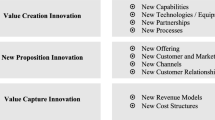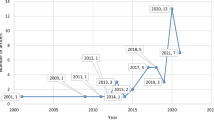Abstract
Everything we do in life involves a connection with information, experience and know-how: together these represent the most valuable of intangible human assets encompassing our history, cultures and wisdom. However, the more easily new technologies gather information, the more we are confronted with our limited capacity to distinguish between what is essential, important or merely ‘nice-to-have’. This article presents the case study of a multilingual Knowledge Management System, the Business enabling e-Platform that gathers and protects tacit knowledge, as the key to developing structured intellectual capital, while acknowledging the urgent need here to integrate Ethics-by-design alongside AI-by-design, in view of the far-reaching consequences involved, for good or ill. It also explains how a beneficial Circular Economy of Knowledge depends on evidence-based answers, and how harmonising taxonomies, terminology and standards promotes global trust as the basis for the unhindered transfer of tacit knowledge between generations in a way that benefits everyone.

Similar content being viewed by others
Notes
Including its subsets, e.g. (Deep) Machine Learning and Neural Technology.
The Business Enabling E-Platform PROMIS® is a new type of multilingual knowledge management system that is integrated within the versatile Integrated Management System framework. When combined with the multilingual terminology and cross-lingual information retrieval, together they form a powerful platform for structured process documentation, the integrated management of compliance, risk and governance, community building, multilingual communication, smart collaboration and e-Mentoring.
AI-by-Design and Ethics-by-Design, here understood as developing and refining the methodologies and rules to be integrated in ICT tools.
‘Communities of Knowledge’ is a new term, but there is a long tradition behind this concept and method. Communities of Knowledge in PROMIS® are new in the sense that the Bee-Platform offers tools for structuring explicit knowledge and individual tacit knowledge, and for transferring them from expert to SME, from association to members, from seasoned contributors to younger ones, from citizens to institutions and vice versa.
Industrialising Knowledge social business model: i.e. do the right job once and share it hundreds of times.
References
Berbenni-Rehm C (2014) ‘A systemic approach to Eco Innovation’, conclusions of the expert workshop, European Commission, DG for Research & Innovation Directorate I – Climate Action and Resource Efficiency, I.2–Eco-innovation, 2nd+3rd June 2014, Brussels. https://www.promis.eu/it/files/2015/12/EC_Expert-Workshop-Systemic-Eco-Inno_June-2014_EC_Report.pdf
Berbenni-Rehm C (2022) High Level Policy Session 7: inclusiveness, access to information and knowledge for all. International Technology Union, ITU – World Summit on the Information Society Forum, WSIS 2022, Geneva 01 Jun 2022. High-level outcomes and executive briefs report. Available: https://www.itu.int/net4/wsis/forum/2022/Files/outcomes/draft/WSISForum2022_High-LevelTrackOutcomesAndExecutiveBrief_20220727.pdf
Berbenni-Rehm C, Broemme A (2016) Eighth European Innovation Summit – Future now! European Parliament Brussels, 14–17 November 2016. https://www.promis.eu/eu/2016/11/14/8th-european-innovation-summit-at-the-european-parliament/
Berbenni-Rehm C, Broemme A (2018) Novel ways to structure, share, manage, communicate, re-use and capitalise on multilingual Knowledge in an integrated way, European Commission, Open Innovation 2.0 Yearbook 2017–2018, Publications Office of the European Union, Luxembourg, 2018, Art. 8, pp. 38–45. Print ISBN 978-92-79-72269-1. https://doi.org/10.2759/14467 KK-06-17-006-EN-C; Web ISBN 978-92-79-72270-7, https://doi.org/10.2759/815824 KK-06-17-006-EN-N ISSN 1977-7558
Berbenni-Rehm C, Druta A, Gowland (2012) Communities of knowledge in the daily life of an SME-The PROMIS® Example, eChallenges e-2012 Proceedings, Paul and Miriam Cunningham (Eds.), IIMC International Information Management Corporation, 2012, ISBN: 978-1-905824-35-9
CEN Workshop Agreement, CWA 16275 (2011) Guidelines for the selection of consultants advising SMEs on integrated quality, environment, health and safety management systems, March 2011, started during the deployPROMIS® project. https://www.promis.eu/eu/wp-content/themes/promis/custom-2/files/CEN_CWA_16275_March_2011_FINAL.pdf
deployPROMIS® project (2008): e-TEN Initial Deployment, GA 046303, 2007–2008. https://www.promis.eu
Gianfranco Berbenni OFM Cap (1996) MultiUniversus® strategic Management (1996) and InGentibus (2001) (Roma-Varese)
Oros R, Pester A, Berbenni-Rehm C (2015) Knowledge management platforms for online training. The international conference on E-learning in the workplace: ICEL 2015. www.icelw.org
PROMIS® project (2001) PRocess oriented integrated quality management internet services for SMEs. GA: C 26402, eTEN, 2000–2001
PROMIS® Lingua project (2013) PeRformance operational and multilingual interactive services to support compliance for SMEs in Europe, ICT Policy Support Programme, Pilot B, GA: CIP-ICT-PSP-270913, 2011–2013. www.promislingua.eu
Rehm-Berbenni C, Dlaska H, Luckner L (2000) Process oriented integrated quality management internet services for SMEs. E-Business: Key Issues, Applications and Technologies, Cheshire Henbury, IOS Press Ohmsha, Amsterdam Berlin Oxford Tokyo Washington DC (Printed in the Netherlands, 2000, pp. 960–966) ISBN: 978-1-58603-089-6
Acknowledgements
Disruptive innovation is never the result of one person’s work only, but of the input –minor or major- made by everyone involved, whether inside and outside the organisation. In our case, my gratitude goes to: (i) the interdisciplinary team composed by 11 senior and junior IT developers, the multilingual, business, marketing, financial, legal experts and the 31 subject matter experts from all over Europe; (ii) my friend, Jeremy, who spent time with me in critical discussion of these topics, and helped me express them in better English.
Author information
Authors and Affiliations
Corresponding author
Ethics declarations
Conflict of interest
I declare having no conflict of interest that is relevant for this article. This article received no grant or financial support. The research, development and innovation work, between 2000 and 2013, has been partially funded by the European Commission.
Additional information
Publisher's Note
Springer Nature remains neutral with regard to jurisdictional claims in published maps and institutional affiliations.
Rights and permissions
Springer Nature or its licensor (e.g. a society or other partner) holds exclusive rights to this article under a publishing agreement with the author(s) or other rightsholder(s); author self-archiving of the accepted manuscript version of this article is solely governed by the terms of such publishing agreement and applicable law.
About this article
Cite this article
Berbenni-Rehm, C. Evidence-based AI, ethics and the circular economy of knowledge. AI & Soc 38, 889–895 (2023). https://doi.org/10.1007/s00146-022-01581-1
Received:
Accepted:
Published:
Issue Date:
DOI: https://doi.org/10.1007/s00146-022-01581-1
Keywords
- Circular Economy of Knowledge
- Artificial intelligence
- AI
- Communities of knowledge
- Tacit knowledge
- Explicit knowledge
- Business enabling e-Platform
- Bee-Platform
- Re-purpose knowledge
- Knowledge protection (IPR)
- Industrialising knowledge
- Multilingual big data
- AI-by-design
- Ethics-by-design
- Social business model
- Organisational culture
- Common good
- e-Mentoring
- Systemic Eco-Innovation
- Structured intellectual capital
- Human-centered methodology




